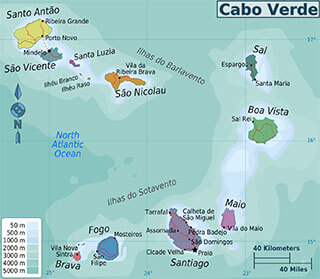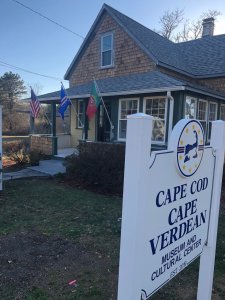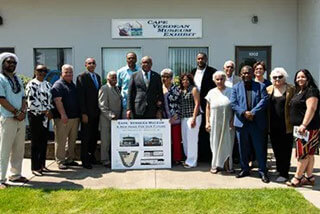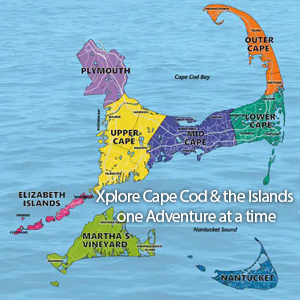“Immigrants, we get the job done” is the famous lyric from a song in the blockbuster Broadway musical Hamilton. Like Alexander Hamilton, immigrants from Cabo Verde (Cape Verde) left an island in the tropics to seek opportunity and adventure in the United States. Like so many immigrant stories, the history of the vibrant Cape Verdean Community on Cape Cod is full of grit, perseverance, creativity, and hard work. The diverse contributions of Cape Verdeans have helped shape the culture, cuisine, and community on Cape Cod.
Over 400 years ago, the first immigrants to the new world, the Pilgrims – or separatists (from the Church of England) as they referred to themselves, arrived in Provincetown, not Plymouth, as many of us learned in elementary school. The first permanent European settlement followed in Plymouth. The Wampanoag, Native Americans indigenous to Cape Cod, educated early settlers on farming, hunting, and fishing techniques, including whaling, and how to leverage every part of the whale for food, tools, and fuel. Cape Cod’s history as a community of fishermen, whalers, farmers, and boat builders drew immigrants from around the world in search of a new life.
Where is Cabo Verde (Cape Verde)?
 Cape Verde or Cabo Verde, officially the Republic of Cabo Verde, is an archipelago nation comprised of ten (nine that are inhabited) volcanic islands that lie 385 miles off the west coast of Africa. Historians believe the islands were uninhabited until their settlement and colonization by Portuguese sailors in the late 15th century. In 1975 Cape Verde gained its independence, and it continues to sustain one of Africa’s most stable democratic governments and one of its most stable economies.
Cape Verde or Cabo Verde, officially the Republic of Cabo Verde, is an archipelago nation comprised of ten (nine that are inhabited) volcanic islands that lie 385 miles off the west coast of Africa. Historians believe the islands were uninhabited until their settlement and colonization by Portuguese sailors in the late 15th century. In 1975 Cape Verde gained its independence, and it continues to sustain one of Africa’s most stable democratic governments and one of its most stable economies.
What Drove Emigration from Cabo Verde to Massachusetts?
A devastating drought and famine in the mid-19th century took the lives of nearly a quarter of the population of Cabo Verde. Challenging times catalyzed a large-scale migration to Massachusetts and Rhode Island. Cape Verdeans hopped packet ships that stopped in Cabo Verde for provisions and sailed to New Bedford, Cape Cod, and Fall River to work in the whaling industry. Not only did Cape Verdeans settle in Massachusetts, but between 1860 and 1965, 41% of the packets trading between New England and the Islands were owned by Cape Verdeans.
As the Whaling industry declined due to the introduction of fossil fuels, Cape Verdeans remained in the region. Before the cranberry industry was mechanized, hundreds of Cape Verdean men and women worked in the cranberry industry in Harwich and Onset. Many eventually farmed their own cranberry bogs.
 Barbara Burgo, curator and one of the Cape Cod Cape Verdean Museum and Cultural Center co-founders in Falmouth, is also a third-generation Cape Codder of Cape Verdean descent. In an interview with the Cape Cod Times, she shared that “The Wampanoags taught us how to pick cranberries and start our own bogs. We worked alongside Finnish people who came to Cape Cod in the late 1800s and early 1900s.” Now, she said, Cape Verdeans who settled here have established themselves in non-labor or service professions enabling new immigrants to the Cape to fill labor roles once primarily held by Cape Verdeans.
Barbara Burgo, curator and one of the Cape Cod Cape Verdean Museum and Cultural Center co-founders in Falmouth, is also a third-generation Cape Codder of Cape Verdean descent. In an interview with the Cape Cod Times, she shared that “The Wampanoags taught us how to pick cranberries and start our own bogs. We worked alongside Finnish people who came to Cape Cod in the late 1800s and early 1900s.” Now, she said, Cape Verdeans who settled here have established themselves in non-labor or service professions enabling new immigrants to the Cape to fill labor roles once primarily held by Cape Verdeans.
It is estimated that more than 95,000 people of Cape Verdean descent live in the United States, most of whom live in Massachusetts. It is hard to know the actual number because many Cape Verdeans identify as Portuguese rather than West African or Cape Verdean.
The Cape Verdean Community on Cape Cod Contributes to Diversity
On Cape Cod, Cape Verdean immigrants formed tightly knit enclaves, supporting one another and passing on traditions that kept them connected to their past. Immigrant communities like these forged the community connection and support many Cape Codders deeply value and perpetuate today.
Popular Cape Verdean and Portuguese dishes like Jagacinda (or simply Jag), a rice, bean, and sausage dish, Caldo de Peixe (Cape Verdean braised bluefish), and of course, Portuguese Kale Soup are still fan-favorites on Cape Cod menus.
The Portuguese-speaking or Lusophone community on Cape Cod remains solid and connected. In addition to the vibrant Cape Verdean community on Cape Cod, thousands emigrated from Portugal’s Azore islands to create thriving communities in Provinc
etown and the Outer Cape. The most recent group of Lusophone immigrants is from Brazil. Brazilian restaurants, churches, and shops have popped up in Yarmouth and Hyannis, introducing Cape Cod to Brazilian Churasscarria, Feijoada, music, and culture.
The Cape Cod Cape Verdean Museum and Cultural Center
 The Cape Cod Cape Verdean Museum and Cultural Center in East Falmouth is dedicated to sharing the past, present, and future of the vibrant Cape Verdean Community on Cape Cod. Programming encourages efforts toward social and racial equality, agricultural equity, updated farming practices, and eliminating local food insecurity while enhancing awareness of cultural cuisine through cooking classes. They offer many events and exhibits: lessons in Kriolu, Portuguese, and English (in person and via Zoom), as well as an exciting “Sister School Project” between Prof. Zita Vieira’s English Language Learners school in Praia, Santiago Island, Cabo Verde, and the Falmouth Public Schools, concerts, lectures, and art exhibits.
The Cape Cod Cape Verdean Museum and Cultural Center in East Falmouth is dedicated to sharing the past, present, and future of the vibrant Cape Verdean Community on Cape Cod. Programming encourages efforts toward social and racial equality, agricultural equity, updated farming practices, and eliminating local food insecurity while enhancing awareness of cultural cuisine through cooking classes. They offer many events and exhibits: lessons in Kriolu, Portuguese, and English (in person and via Zoom), as well as an exciting “Sister School Project” between Prof. Zita Vieira’s English Language Learners school in Praia, Santiago Island, Cabo Verde, and the Falmouth Public Schools, concerts, lectures, and art exhibits.
Enriching the Quality of Life on Cape Cod
The vibrant Cape Verdean Community on Cape Cod has contributed to the history, economy, and culture of Cape Cod today. Celebrating the unique contributions of Cape Cod’s indigenous people and those who left their homes on foreign shores to forge a new life reminds us that our collective experiences, histories, and traditions enrich and strengthen the fabric of our community.




